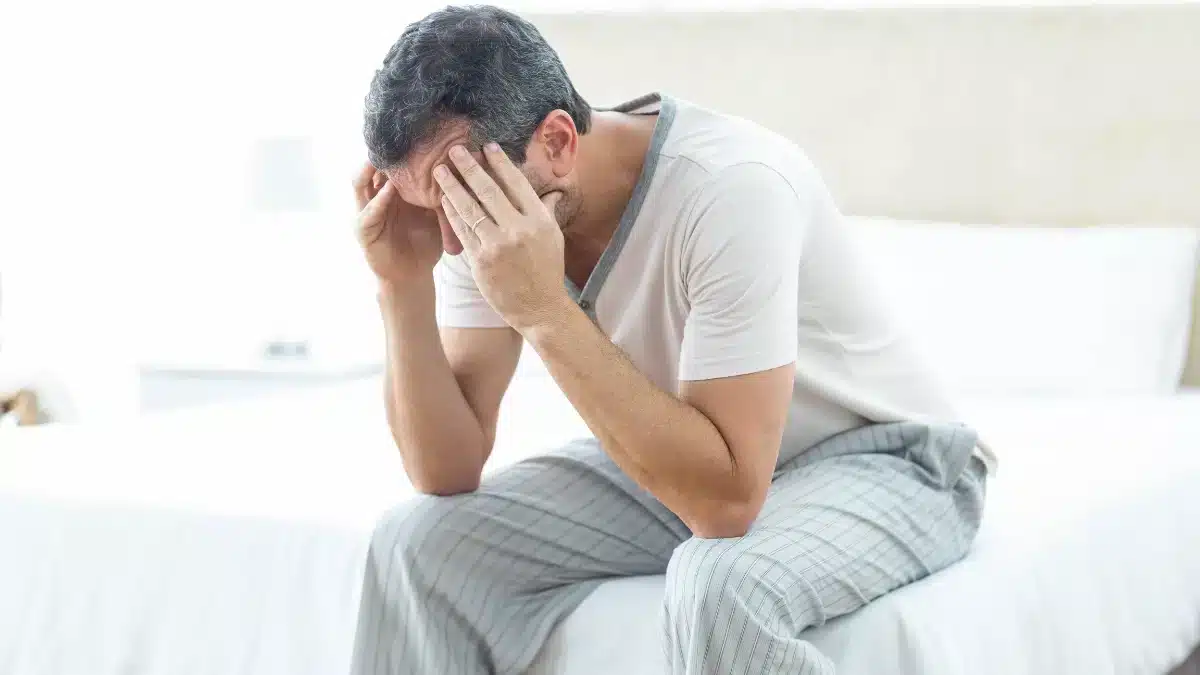Understanding Low Testosterone in Men: Symptoms, Causes, and Management
Testosterone is a key hormone in the male body, playing a vital role in various aspects of men’s health, including muscle mass, bone density, and sexual function.
However, as men age, it’s not uncommon for their Testosterone levels to gradually decline.
This natural phenomenon can lead to a range of symptoms and health concerns.
In this comprehensive guide, we’ll explore the world of low Testosterone in men, delving into its signs and symptoms, causes, and management tips.
Signs and symptoms
Recognizing the signs and symptoms of low Testosterone is crucial for early intervention.
Common indicators may include:
- Reduced sex drive: A noticeable decline in sexual desire or libido
- Erectile Dysfunction: Difficulty achieving or maintaining an erection during sexual activity
- Fatigue and decreased Energy: Persistent feelings of tiredness, low energy levels, and reduced stamina
- Loss of muscle mass and strength: Decreased muscle size and strength, even with regular exercise
- Increased body fat: Particularly around the abdomen, leads to a change in body composition
- Mood changes: Mood swings, irritability, depression, or a general sense of sadness
- Decreased bone density: Weakening of bones, which can increase the risk of fractures and Osteoporosis
- Difficulty concentrating: Trouble focusing, memory problems, or a sense of mental fog
Causes of low Testosterone levels

Low Testosterone can result from various underlying factors, including:
- Age: As men age, Testosterone production naturally declines
- Medical conditions: Conditions such as obesity, Diabetes, and metabolic syndrome can contribute to low Testosterone levels
- Testicular issues: Problems with the testicles, such as injury or diseases like Mumps, can lead to reduced Testosterone production
- Hormonal disorders: Disorders affecting the pituitary gland or hypothalamus can disrupt hormone production
- Medications: Some medications, including opioids and steroids, can suppress Testosterone levels
- Chronic illness: Conditions like HIV/AIDS, kidney disease, and liver cirrhosis can affect Testosterone production
- Stress and mental health: High stress levels and mental health disorders can impact hormone regulation
Can Low Testosterone Cause ED? Exploring the Connection
Management tips

Managing low Testosterone involves a combination of lifestyle changes, medical intervention, and, in some cases, Hormone Replacement Therapy.
Here are some practical tips for addressing low Testosterone:
- Regular exercise: Engage in both cardiovascular and strength-training exercises to support natural Testosterone production
- Balanced nutrition: Maintain a healthy diet rich in essential nutrients, including vitamins and minerals crucial for hormonal balance
- Adequate sleep: Aim for 7-9 hours of quality sleep per night to optimize hormonal function and overall well-being
- Stress management: Practice relaxation techniques such as meditation, deep breathing, or yoga to reduce stress levels
- Weight management: Achieving and maintaining a healthy weight can help improve Testosterone levels, especially in cases where obesity contributes to low Testosterone
- Avoidance of excessive alcohol and substance use: Excessive alcohol consumption and substance abuse can negatively impact Testosterone production. Moderation is key
- Medical intervention: Consult a healthcare provider for a thorough evaluation and to discuss potential treatment options, including Hormone Replacement Therapy (HRT) if necessary
- Testosterone Replacement Therapy (TRT): TRT involves the administration of Testosterone through various forms, including injections, patches, gels, or pellets. This approach helps restore Testosterone levels to a healthy range
Conclusion
Understanding low Testosterone in men is crucial for identifying and addressing potential health concerns.
Recognizing symptoms like reduced sex drive, fatigue, and mood changes can prompt early intervention.
Various factors, including age, medical conditions, and medications, can contribute to low Testosterone.
Management involves a holistic approach, including exercise, nutrition, stress management, and, if necessary, medical intervention like Testosterone Replacement Therapy.
Taking proactive steps towards managing low Testosterone can lead to improved overall well-being and quality of life.
Remember, consulting with a healthcare provider is essential for personalized and effective management.
Frequently Asked Questions
Can lifestyle changes alone improve low Testosterone levels?
While lifestyle changes such as weight management, exercise, and a nutritious diet can positively influence Testosterone levels, they may not be sufficient for significant improvement in cases of severe low Testosterone. In such cases, medical intervention may be necessary.
Is Testosterone Replacement Therapy safe?
When administered under the guidance of a healthcare professional, Testosterone Replacement Therapy can be a safe and effective treatment option. However, it’s important to undergo regular monitoring to ensure optimal hormone levels and minimize potential risks.
Can low Testosterone be reversed with treatment?
With appropriate treatment, many individuals experience significant improvement in their symptoms and overall well-being. However, it’s important to note that individual responses to treatment may vary, and long-term management may be necessary.
Are there natural supplements that can boost Testosterone levels?
Some natural supplements, such as DHEA, zinc, and ashwagandha, have been associated with potential benefits for Testosterone levels. However, it’s crucial to consult a healthcare provider before using any supplements, as they may interact with existing medications or have contraindications for certain medical conditions.
WowRx uses only high-quality sources while writing our articles. Please read our content information policy to know more about how we keep our content reliable and trustworthy.






